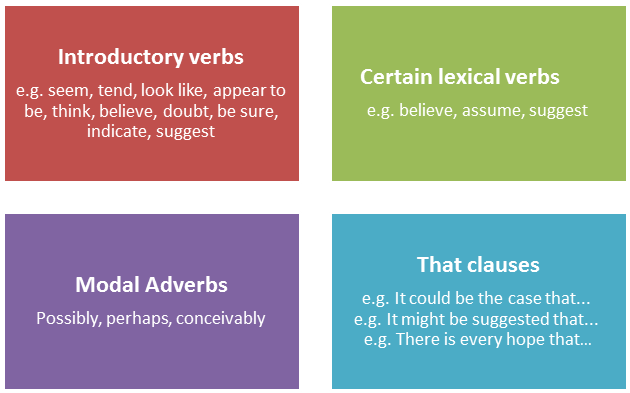Master high score IELTS Speaking in 39 ways • 39 Learn more links • IIWI
For IELTS exam, if you want a high score band in Speaking Section you should have a complete understanding of ONLY 2 things –
One – The BIGGEST Two Reasons for low score bands (3 – 4) in IELTS Speaking.
Two – 39 ways to overcome ALL weaknesses, gaps, shortcomings of English grammar, vocabulary, sentence construction and confidence for IELTS speaking. If you start applying these 39 ways one by one, it will make you sound more natural. In 39 says, your language will become more interesting and you will become super confident about getting and retaining attention of IELTS Examiner or any other listener easily and effectively.
So come read till the end and send the low score band out of the window!
Ring in confidence for high score band for IELTS exam. You deserve it!
The BIGGEST Two Reasons why candidates get low score (band 3 – 4) in IELTS Speaking
1. Instead of using natural sounding language test takers use memorized language.
They try to manage with language learnt through rote memorization without an understanding of what they are saying, how they are saying and what impact it makes on the listener. Sometimes they are not even aware of the meaning being conveyed. IELTS Examiner rates this language as band 3.
2. Wrong ideas about Learning English speaking
80% of IELTS test takers have this great misunderstanding –
Agar mujhe reading aur listening mein problem nahin hai toh speaking confidence bhee aa jayega.
“Reading and Listening to English well will give me ability to speak confidently also.”
Please understand, this is not true at all.
3 Things to know for Understanding English Speaking Process correctly
The reason being, Reading and Listening are processes that do not require you to produce language.
But speaking is language production (you need to make your own language) and language production is a muti-tasking process. It is an on-the spot process. Without having any time to prepare you need to do these 3 things –
- You need to recall words from memory while planning speech: When you produce language, you need to remember the suitable word. You also need to plan the structure of your speech simultaneously. Where to start, what to say next, how to end it.
For example, if you are to give a presentation on a topic you’re not very familiar with, you may need to take a few seconds to recall the exact words you want to use while also trying to work out the overall structure of your presentation. - You need to apply grammatical rules while producing speech: In addition to retrieving words and planning speech, language production also involves applying grammatical rules to construct coherent sentences (meaningful sentences).
For example, imagine you’re having a conversation with a friend and you realize that you’ve made a grammatical mistake in your previous sentence. You need to quickly recognize the mistake and apply the appropriate grammar rules to correct it, all while continuing to monitor the conversation. - You need to adapt to the listener’s responses while maintaining fluency: When you produce language, you also need to adapt to your listener’s responses in real-time. This needs making adjustments to your vocabulary, tone, and speed of speech based on the listener’s ability and feedback.
For example, imagine you’re speaking with someone whose first language is not the same as yours. You may need to adjust your vocabulary and sentence structure (you will need to keep it simple) to ensure that you’re being understood, all this while maintaining fluency in your speech.
The candidates should put in efforts (Trust me, it’s not that difficult!) to learn natural sounding language. You should get a good enough understanding of the language’s rules and features. This will give you a fluid and expressive speech.
Here are 45 ways to make your answers sound more natural in the IELTS Speaking test.
- Vary your vocabulary: Use synonyms and different forms of words to avoid repetition and sound more natural.
Original sentence:
I went to the store and I bought some milk. Then I walked to my car and I drove home.
Better sentence:
I went to the store and purchased some milk. After that, I walked to my car and drove back home.
In this example, I used synonyms and different forms of words to avoid repeating the same words/phrases (i.e. “bought” instead of “purchased,” “walked” instead of “went,” “drove” instead of “went,” etc.).
Learn more about importance of vocabulary: https://textinspector.com/vocabulary-in-language-learning/
- Speak at a natural pace: Avoid speaking too fast or too slow; try to speak at a pace that feels comfortable and natural for you.
Learn more: https://speakerhubhq.medium.com/your-speech-pace-guide-to-speeding-and-slowing-down-be150dcb9cd7
- Use natural intonation: Vary your pitch and tone to emphasize important points and convey emotion. Some people get low scores when they speak as I they are reading from a paper. Never do that. Keep the tone and pitch the same as you use for mother tongue. Stop thinking you’re speaking a foreign language. Be your natural self.
attach word file : iiwi-ielts rising falling intonation practice - Use appropriate tone: Use a polite and respectful tone throughout the exam.
Learn more about ways to keep tone positive: https://classroom.synonym.com/create-positive-tone-voice-2886.html
- Use paraphrasing: Rephrase the examiner’s question before answering it to show your understanding and buy some thinking time.
Learn more about why paraphrasing gets you high score band and how to do it. https://www.genei.io/blog/3-benefits-of-paraphrasing-the-skill-for-learning-writing-and-communicating?genei_segment_id=bb9b4a6e-9c03-4df6-8ea6-091649c81ade
- Use repetition: Repeat key phrases or words to emphasize a point or show a contrast.
Learn more about useful repetition of syllables, words and phrases : https://www.agnesscott.edu/center-for-writing-and-speaking/handouts/repetition.html
- Use appropriate register: Use the appropriate level of formality for the situation, being neither too casual nor too formal.
Learn more about different registers : https://exclusive.multibriefs.com/content/language-register-what-is-it-and-why-does-it-matter/education#:~:text=Formal%2FAcademic%20Register%3A%20This%20register,often%20used%20in%20professional%20settings.
Learn more about difference between tone & register: https://thewritelife.com/understanding-register/#:~:text=Register%20is%20the%20level%20of,text%20message%20to%20a%20friend). From this link you will also learn about what exactly is register and formal vs informal register.
- Use contractions where appropriate, e.g. “I’ve” instead of “I have”. Instead of saying “I am” say “I’m”, or instead of “you are” say “you’re”.
Learn all about contractions here: https://www.sankinspeechimprovement.com/accent-reduction-learning-to-use-contractions/
- Vary your sentence structure by using different types of clauses and phrases, e.g. relative clauses.
Relative clauses help you give detailing of nouns and pronouns. One easy way to lengthen the sentence and go to complex sentence level.
Learn more about how to make and use relative clauses: https://icosa.hkbu.edu.hk/grammar/sentence-structure/relative-clauses/index.htm
- Vary your sentence structure by using different types of clauses and phrases, e.g. participial phrases.
Again participle phrases help you include details about subjects in a sentence. One more easy way to make complex sentences. Making complex sentences gets you a high score band.
Learn more; https://www.esu.edu/writing-studio/guides/participles.cfm
- Use phrasal verbs where appropriate, e.g. “put up with” instead of “tolerate”.
Native seakers use a lot of phrasal verbs in speaking. These are groups of few words that pack in a bigger meaning. Using phrasal verbs gives you more accuracy in communication.
First, go to https://howdoyou.do/10-things-you-should-know-about-phrasal-verbs/ & https://www.inenglishwithlove.com/blog/why-are-phrasal-verbs-important to learn about why you should use phrasal verbs.
Second, go to https://www.gingersoftware.com/content/grammar-rules/verbs/list-of-phrasal-verbs/ for more than 100 phrasal verbs examples and sentence examples.
- Use idioms where appropriate, e.g. “put up with” instead of “tolerate”.
An idiom helps you tell what a thousand words cannot. Using idioms is a common feature of native speakers. So if you want to sound like a native speaker, learn idioms (keep to easy ones), their meanings and sentence examples.
Go to https://www.wonderopolis.org/wonder/why-do-people-use-idioms to learn more reasons of why you should use idioms.
And here’s a list of easy idioms https://eslexpat.com/english-idioms-and-phrases/
- Use appropriate intonation and stress to convey meaning and emotion.
People get a lot confused between stress, intonation, tone and pronunciation. So first understand ‘what is stress’ from https://tfcs.baruch.cuny.edu/stress/ .
Learn more about difference in Noun and Verb stress: https://pomaka.com/2020/01/18/some-tips-on/
- Use discourse markers such as “well”, “anyway”, and “you know” to signal shifts in topic or thought. Use phrases like “to begin with”, “moving on to”, “in conclusion”, to structure your answers. Use phrases like “right”, “so”, “well”, “now”, to indicate a change of direction or a conclusion.
Learn more : https://dictionary.cambridge.org/grammar/british-grammar/discourse-markers-so-right-okay
- Use antonyms with a negative to avoid repetition of the same words.
This is one of the easiest and least used way to compare and describe effectively.
Read more: https://www.grammarly.com/blog/antonym/#:~:text=Using%20antonyms%20with%20a%20negative,re%20saying%20the%20same%20thing.
- Use appropriate fillers such as “um”, “ah”, and “well” when pausing or hesitating.
Fillers buy you time to think. They help you continue conversation longer. Fillers are not useless expressions or words – they have a useful purpose – both interactional and cognitive.
Learn more: https://www.independent.co.uk/life-style/um-like-filler-words-discourse-markers-why-use-er-you-know-a7665721.html
- Use appropriate interjections such as “wow” and “oh” to express surprise or emotion.
Interjections are emotive words that add colour to your speech. Just remember not to overuse them.
Learn more: https://www.eurocentres.com/blog/what-are-interjections-and-how-do-you-use-them
- Use appropriate politeness strategies, e.g. “excuse me” and “please”.
Politeness is used to avoid unpleasantness and conflict in human interactions. It is important that you be aware of various politeness strategies in words and manner to have healthy conversations.
19. Use appropriate conditional structures (if clauses), e.g. “If I were you, I would” instead of “If I am you, I will”.
Conditionals explain the outcome that follows a certain condition. It has two parts –
Part 1 – The’ if statement that tells the condition (e.g., If you put in effort)
Part 2 – the main clause that tells the consequence (e.g., you will achieve success in your endeavors).

20. Use appropriate discourse markers to indicate time, e.g. “in the past”, “nowadays”.
21. Use hedging: Use phrases like “I think”, “in my opinion”, “it could be argued”, to avoid sounding too definitive or dogmatic. Use “sort of”, “kind of”, to express certainty and uncertainty. Hedging is cautious language used for giving credibility to your words.

22. Use appropriate quantifiers and intensifiers to express degree, e.g. “a little”, “a lot”.

23. Use appropriate negation, e.g. “not really” instead of “no”.

24. Use appropriate question tags, e.g. “isn’t it” instead of “isn’t that”.
25. Use appropriate expressions of agreement or disagreement, e.g. “I see your point” or “I’m afraid I have to disagree”.
Know more from the tables shared in this research article : https://core.ac.uk/download/pdf/291613892.pdf Page 5 onwards
`26. Use appropriate modals to express obligation, possibility, or ability, e.g. “should”, “might”, “can”.

27. Use appropriate comparative and superlative structures to compare and contrast, e.g. “more important than”, “the most important”.
Using comparisons helps link up things. It makes language more nuanced and detailed.
You need to use comparatives and superlatives for comparing, contrasting and describing things. You need to use these words all the time. So just get a grip on them.
Here’s a list and explanation blogpost to start with : https://www.albert.io/blog/comparatives-and-superlatives/
Learn more- rules of making comparatives and superlatives correctly
https://ellii.com/blog/funner
28 .Use appropriate prepositions to show relationships between ideas, e.g. “in spite of”, “because of”.
Prepositions tell the relative relationships, placement, connections and logics between things. Most common mistakes are of using prepositions incorrectly. So be careful.
All about prepositions: https://academicguides.waldenu.edu/writingcenter/grammar/prepositions
This wonderful article will give you full information right from basics, to classifications to usages with suitable easy examples. It will be a good idea to devote one full day to Prepositions and see the amount of increase in confidence you get.
29. Use appropriate connectors to link ideas, e.g. “moreover”, “on the other hand”. Using connectors is important for connecting ideas and thus necessary for fluency.
Learn more: https://lvlinguistics.be/english-connectors/
30. Use appropriate phrasing to describe processes or procedures, e.g. “firstly”, “secondly”, “finally”.
Connectors of sequence help you connect ideas, situations, happenings, events in a logical sequence. These are extremely essential for describing procedures and processes.
Learn more: https://www.juicyenglish.com/blog/connectors-of-sequence
31. Use appropriate phrasing to give examples, e.g. “for instance”, “such as”.
Here’s a blog post, probably the most interesting one in this article. It is about how you can say For example in 13 interesting ways in your daily talk or when you are giving examples to convince someone.
32. Use appropriate phrasing to show cause and effect, e.g. “as a result of”, “due to”.
Read more: https://basicenglishspeaking.com/expressing-cause-effect-english/
33. Use appropriate phrasing to make generalizations, e.g. “generally speaking”, “as a rule”.
Learn more about how to use valid generalisations. Carefully go through examples of good and faulty generalisations.
https://examples.yourdictionary.com/examples-of-generalization.html
34. Use hypotheticals: Use phrases like “what if”, “suppose that”, “imagine if”, to express effectively in different scenarios and possibilities. These phrases help you tell situations that you imagine and wishes that you make.
Learn more + online quiz : https://www.thoughtco.com/how-to-discuss-hypothetical-situations-in-english-4177287
35. Use personal anecdotes & real-life examples: Share stories and personal experiences to illustrate your points and make your answers more interesting. This makes you sound authentic. Lends credibility to the point that you are trying to make. Personal anecdotes carry a lot of insights and details of human experience that people love to hear about. It’s a good way to hold attention. But take care to keep anecdotes short.
You need these especially for Speaking Part 3 and Essay writing.
Here’s a post to help you identify anecdotes and see how you can weave them into your narration or essay
https://k12.thoughtfullearning.com/minilesson/using-anecdotes-formal-writing
36. Use descriptive language: Use vivid language and sensory details to paint a picture in the examiner’s mind. Your reader of listener should be able to see and feel the story, the picture that you are trying to create with words.
Learn more: https://www.talkingmatters.com.au/about-us/resources/vocabulary/developing-descriptive-language
Here’s what news makers say about using 4 most common categories of descriptive words: https://inside.tru.ca/2015/04/13/using-descriptive-language/
37. Use complex sentence structures with subordinate clauses to show your linguistic ability and make your answers more interesting.
38. Use humour: Incorporate appropriate humour to make your answers more engaging and memorable.
Learn more about why use humour: https://franticallyspeaking.com/a-guide-to-using-humor-in-your-speech/
39. Use appropriate body language: Use hand gestures, facial expressions, and body posture to convey confidence and engagement.
Learn more about positive and negative body language: https://virtualspeech.com/blog/examples-positive-and-negative-body-language#:~:text=Displaying%20positive%20body%20language%20can,respected%20and%20heard%20by%20you

Founder- IIWI Learning IELTS 8+ Coach, 30 yrs exp.|Author|Blogger


Leave a Reply